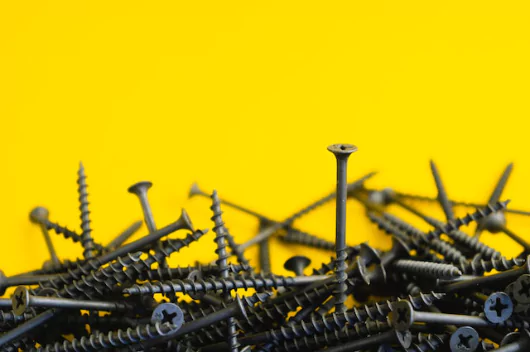What Are Landlords Responsible For Fixing and Maintaining?

Apologies, this article is quite long and boring, but could answer your 'What can I do if my landlord isn't fixing things?' or 'What does my landlords have to fix?' questions.
As a renter, it's crucial to know what maintenance and repair responsibilities fall under your landlord's jurisdiction and what tasks might fall onto your own shoulders. While some areas are clearly defined, others might reside in a bit of a grey area. This comprehensive guide will shine a light on the key differences, ensuring UK renters know their rights and landlords understand their responsibilities.
What Landlords Have to Fix
We’re going to be referring to a key bit of legislation a lot in this article, so make a cuppa and grab some chocolate Hobnobs while we dive into the Landlord and Tenant Act 1985.
Structural Repairs
Under the Landlord and Tenant Act 1985, landlords are responsible for the property's structural integrity.
This includes the walls, roof, windows, and doors.
Section 11 titled ‘Repairing obligations in short leases.’ provides:
In a lease to which this section applies (as to which, see sections 13 and 14) there is implied a covenant by the lessor—
(a) to keep in repair the structure and exterior of the dwelling-house (including drains, gutters and external pipes),
Section 10 titled ‘Fitness for human habitation.’ provides:
In determining for the purposes of this Act whether a house is unfit for human habitation, regard shall be had to its condition in respect of the following matters—
repair,
stability,
freedom from damp,
internal arrangement,
natural lighting,
ventilation,
water supply,
drainage and sanitary conveniences,
facilities for preparation and cooking of food and for the disposal of waste water;
and the house shall be regarded as unfit for human habitation if, and only if, it is so far defective in one or more of those matters that it is not reasonably suitable for occupation in that condition.
Your Landlord Has to Keep Utilities Maintained
Your landlord is also responsible for maintaining and repairing installations for the supply of water, gas, and electricity. This also extends to the plumbing system, basins, sinks, toilets, and baths. Landlord and Tenant Act 1985 again:
Section 11, (1):
(a) to keep in repair the structure and exterior of the dwelling-house (including drains, gutters and external pipes),
(b) to keep in repair and proper working order the installations in the dwelling-house for the supply of water, gas and electricity and for sanitation (including basins, sinks, baths and sanitary conveniences, but not other fixtures, fittings and appliances for making use of the supply of water, gas or electricity),
Landlords Have To Provide Heating and Hot Water
Heating systems and hot water installations fall under the landlord's duty to repair and maintain. If your boiler breaks down or your radiators stop working, it's your landlord's responsibility to fix it. Landlord and Tenant Act 1985 states:
Section 11, (1):
(c) to keep in repair and proper working order the installations in the dwelling-house for space heating and heating water.
Smoke Alarms, Carbon Monoxide Alarms and Landlords
Moving on from our friend the Landlord and Tenant Act 1985 to the very descriptive ‘Smoke and Carbon Monoxide Alarm (England) Regulations 2015’ which came into force on 1 October 2015.
Safety is paramount. This means landlords are required to maintain and fix safety features like smoke alarms, carbon monoxide detectors, and fire safety equipment. Regular safety checks, like gas safety checks, are also a must.
Section 4 (1):
(a) (i) a smoke alarm is equipped on each storey of the premises on which there is a room used wholly or partly as living accommodation;
(ii)a carbon monoxide alarm is equipped in any room of the premises which is used wholly or partly as living accommodation and contains a solid fuel burning combustion appliance;
Common Areas Have To Be Maintained by Landlords
In shared buildings, landlords have a responsibility for the upkeep of common areas. This includes hallways, staircases, and shared facilities.
What Landlords Don't Have to Fix
Minor Repairs
Small maintenance tasks like changing light bulbs or replacing batteries in smoke detectors are typically the renter's responsibility.
Damage Caused by the Tenant
If you've accidentally caused damage to the property (like a wine stain on the carpet or a broken window), these repair costs usually fall to the tenant.
Personal Appliances
Your landlord is not responsible for fixing or maintaining personal appliances that you've brought into the property. This includes things like your personal microwave, television, or laptop.
Cosmetic Issues
Minor cosmetic issues like scuffed paint or a loose door handle are generally not considered the landlord's responsibility to fix unless they pose a safety risk or they are specifically covered in your tenancy agreement.
Garden Maintenance
Unless specified in the tenancy agreement, routine garden maintenance like mowing the lawn or trimming hedges typically falls to the tenant.
Further reading
We’ve only scratched the surface of the legislation surrounding the complex world of renting, renters and landlords responsibilities.
If you feel like going deeper, delve into the following:
The Smoke and Carbon Monoxide Alarm (England) Regulations 2015
Congrats If You've Made It This Far
Understanding the fine line between a landlord's repair obligations and a tenant's responsibilities is key for maintaining a positive rental relationship. As a tenant, knowing these differences helps you know when to reach out to your landlord and when it might be quicker (and easier!) to do it yourself. And as a landlord, knowing your responsibilities helps ensure you're providing a safe, comfortable, and legally compliant living environment.
Help Future Renters!
Still have questions about who's responsible for what? Or perhaps you have an interesting story or tip to share on navigating the landlord-tenant relationship? Leave a review of your landlord on Marks Out Of Tenancy - every review makes a difference! For more insights into UK renters' rights and responsibilities, check out our other articles on the subject.
